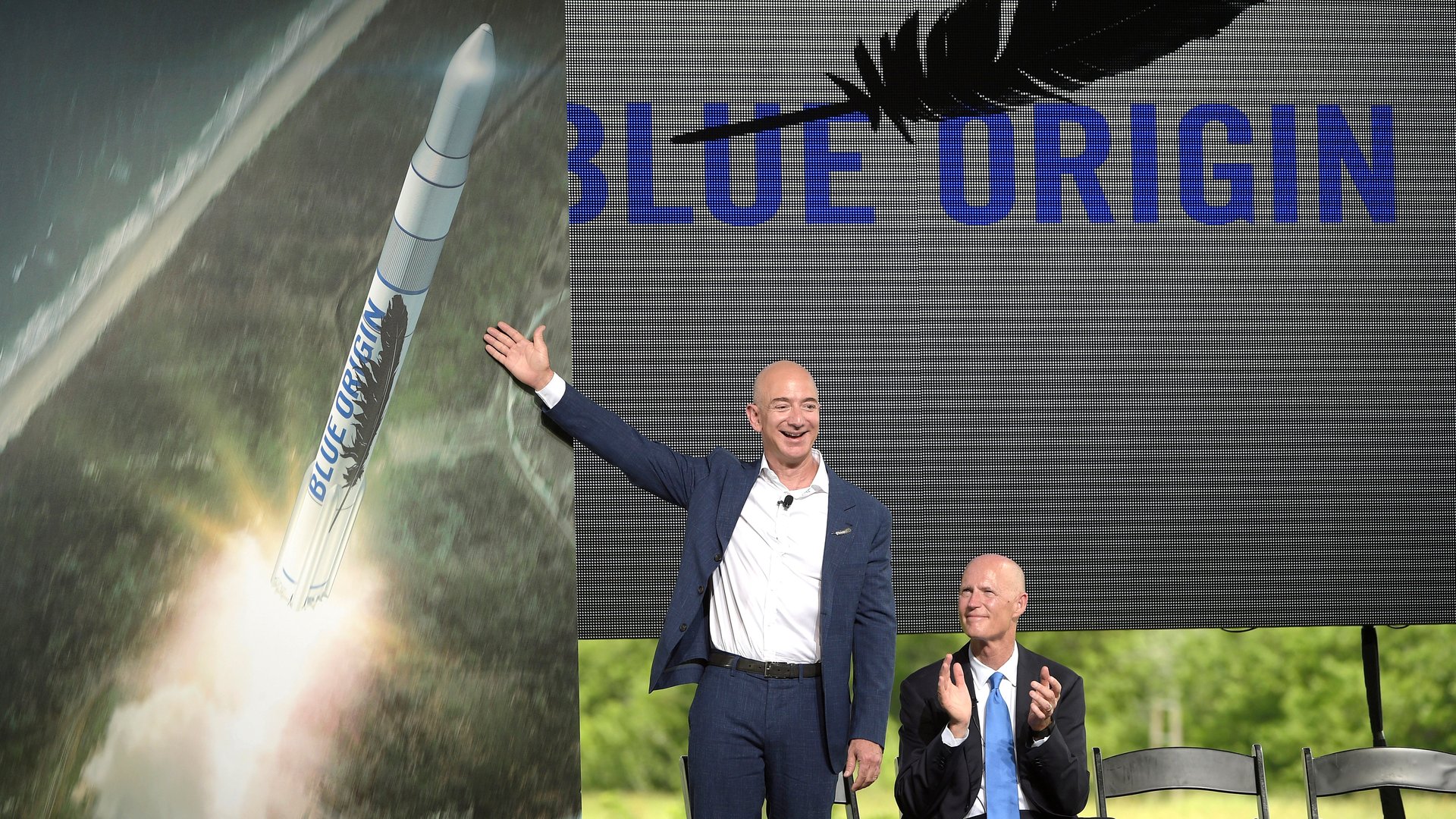The US Air Force is spending $500 million on Jeff Bezos’s New Glenn rocket
The US Air Force shook up the rocket business today by announcing a $500 million contract for Jeff Bezos’ space company Blue Origin.


The US Air Force shook up the rocket business today by announcing a $500 million contract for Jeff Bezos’ space company Blue Origin.
The money will fund development of the New Glenn rocket, so that it can demonstrate its ability to carry military and spy satellites into space.
The US military intends to select two rocket companies to launch its spacecraft beginning in 2020. Today, the Pentagon also awarded a $792 million development contract to Northrop Grumman for a rocket called OmegA and a $967 million agreement to United Launch Alliance, a joint venture of Boeing and Lockheed Martin, to build a rocket called the Vulcan Centaur. Vulcan will use the same engine as New Glenn, thanks to a supply agreement made official last month.
SpaceX, which broke ULA’s monopoly on military launches after suing the US Air Force, was not awarded a development contract, which surprised many industry observers. SpaceX can still compete for national security launch contracts in 2020, since the contracts awarded today are simply to develop rockets that can meet the requirements for future missions.
SpaceX did not respond to requests for comment, and the US Air Force wouldn’t comment on companies not awarded contracts.
The announcement comes after years of Air Force deliberation on how to ensure that it can always launch and operate the satellites that give US armed forces advantages in navigation, communication and guidance.
In 2006, during a previous round of rocket procurement, the Pentagon was forced to grant ULA a monopoly on rocket launches to keep it afloat after dreams of a commercially-subsidized space industry fell apart. Only the arrival of SpaceX on the scene to compete with a cheaper, reusable Falcon 9 rocket shook the market and forced ULA to compete by designing the new Vulcan Centaur.
ULA is seen as having a major advantage in the future launch competition because its parents are the two largest US defense contractors. SpaceX’s Falcon rockets have come to dominate the commercial market, and its Falcon 9 and Falcon Heavy are likely to remain competitive with the other entrants in the future competition.
Musk’s next rocket project is the BFR, which is far more powerful than the rockets under consideration for this contract. The only public contract for that vehicle is with Japanese billionaire Yusaku Maezawa, who hopes to fly a crew of artists around the moon in 2023.
Northrop Grumman’s OmegA rocket is developed by Orbital ATK, a contractor it acquired earlier this year. The OmegA is a unique design among the competitors as a solid-fueled rocket based on the space shuttle’s boosters. Blue Origin, meanwhile, has yet to field a rocket capable of reaching orbit, but its suborbital New Shepard design has won plaudits, and its New Glenn development program has been the subject of significant investment.